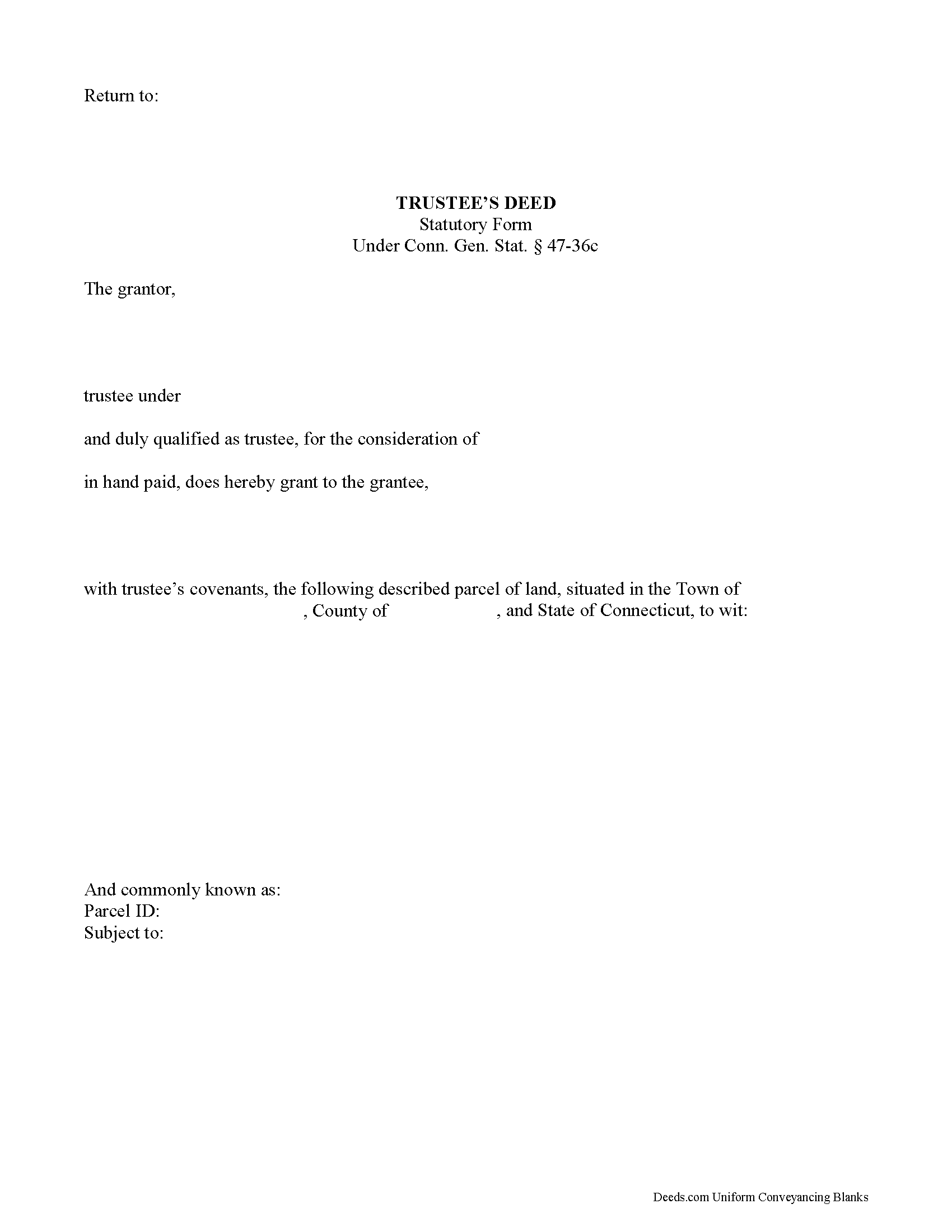Connecticut Trustee Deed Forms

Connecticut Trustee Deed Overview

How to Use This Form
- Select your county from the list on the left
- Download the county-specific form
- Fill in the required information
- Have the document notarized if required
- Record with your county recorder's office
The trustee's deed is a statutory conveyance under Section 47-36c of the Connecticut Statutes. Unlike other forms of conveyance, it is named for the person executing the deed rather than the type of deed it is.
Used in trust administration, the trustee's deed conveys real property out of a trust. Since trusts cannot legally hold title to property in Connecticut, the trustee holds title to real property as a representative of the trust. The trustee must be authorized by the trust instrument to hold the position of trustee and to act on the trust's behalf.
A basic trustee's deed will name the trust's original trustee as the grantor and vest title in the name of a grantee. Sometimes, the grantor appears as a successor trustee if the original trustee is unavailable, due to death, for example. Documentation evidencing the change in trustee must be recorded in the town's land records.
When correctly executed, the trustee's deed grants title in fee simple to the grantee with the following trustee's covenants, pursuant to Sec. 47-36s of the Statutes: (1) the trustee is duly qualified to act as trustee, (2) the trustee has full power and authority as trustee to bargain and sell the described premises in manner and form as set forth, and (3) the trustee and the trustee's successors shall warrant and defend the granted premises against all claims and demands of any person claiming by, from or under the trustee. Sometimes, a third party may request a declaration or certification of trust as proof of trustee's authority to transfer title.
As with all documents affecting real property, the trustee's deed should contain a legal description of the subject parcel. All trustees must sign the deed in the presence of a notary for a valid transfer. Two witness signatures are required (Conn. Gen. Stat. 47-5(a)(4)). In Connecticut, land records are recorded in the individual town where the property is located, and not at the county level.
Each case is unique, so contact an attorney with specific questions or for complex situations.
Important: County-Specific Forms
Our trustee deed forms are specifically formatted for each county in Connecticut.
After selecting your county, you'll receive forms that meet all local recording requirements, ensuring your documents will be accepted without delays or rejection fees.
How to Use This Form
- Select your county from the list above
- Download the county-specific form
- Fill in the required information
- Have the document notarized if required
- Record with your county recorder's office
Common Uses for Trustee Deed
- Transfer property between family members
- Add or remove names from property titles
- Transfer property into or out of trusts
- Correct errors in previously recorded deeds
- Gift property to others